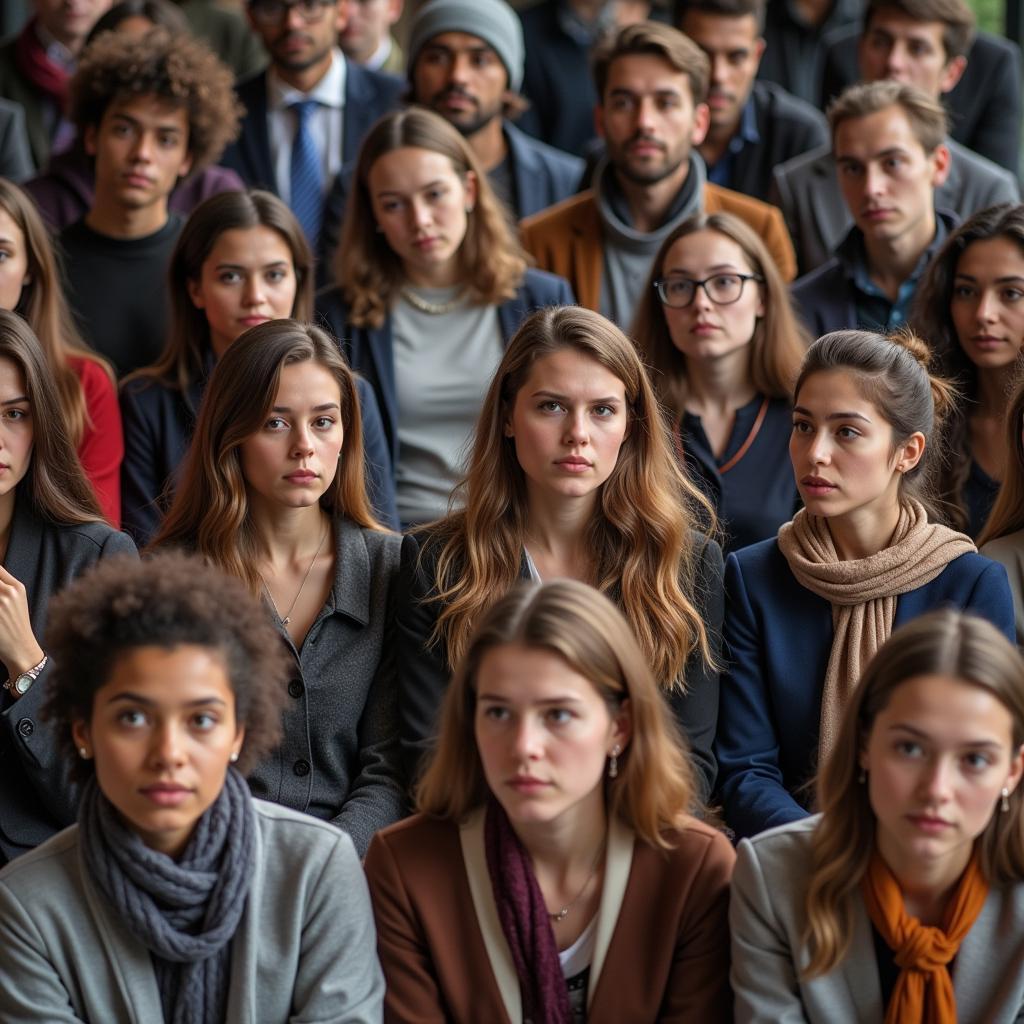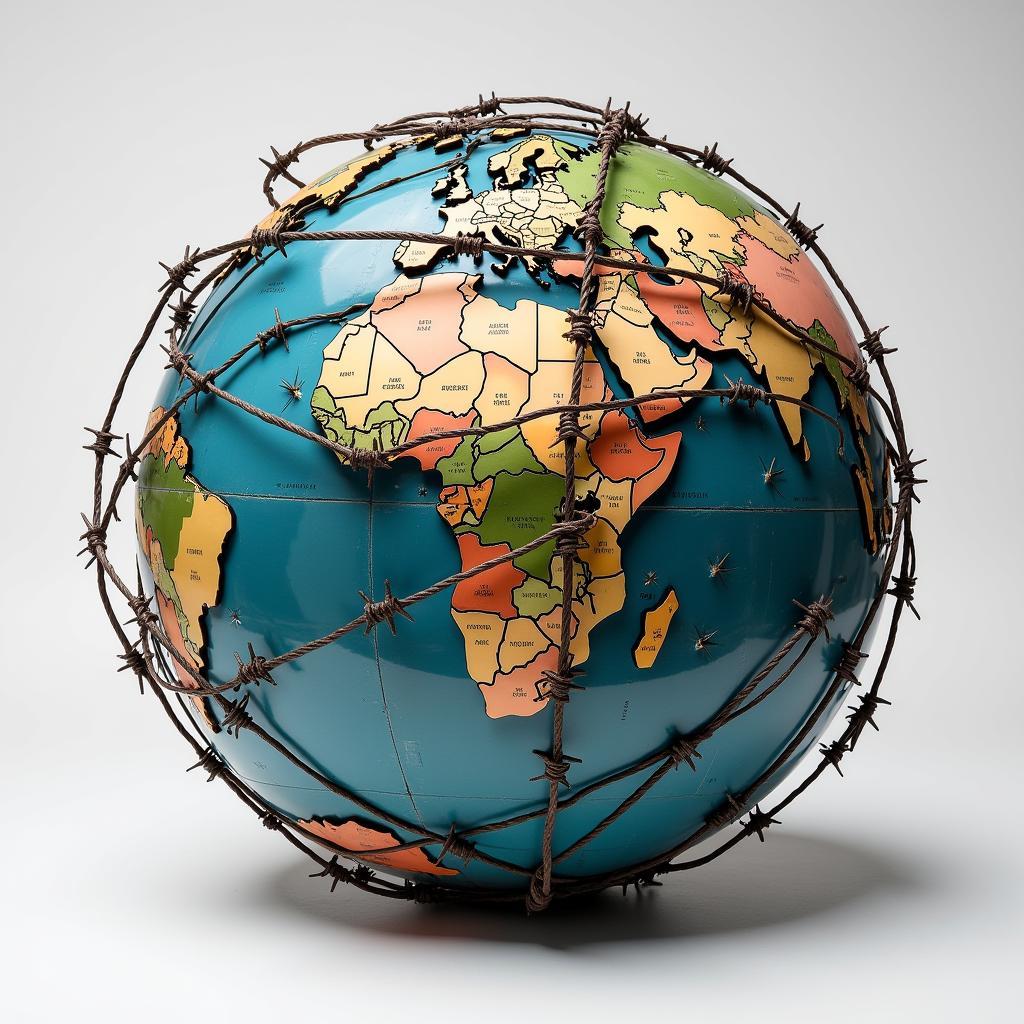Laws, customs, traditions, and social norms – these are all mechanisms by which humanity attempts to interpret the ethics of a society. They are frameworks designed to guide behavior, promote cooperation, and establish a sense of shared values. But are these attempts successful? And more importantly, do they truly reflect a universal moral compass, or are they simply reflections of the prevailing power structures and cultural biases of a particular time and place?
The quest to understand what constitutes ethical behavior is as old as civilization itself. From the ancient codes of Hammurabi and the Ten Commandments to the philosophical treatises of Socrates and Confucius, humanity has long grappled with the complexities of right and wrong, justice and fairness, and the responsibilities of individuals towards each other and the collective.
 Diverse group of people contemplating ethics
Diverse group of people contemplating ethics
The Evolving Nature of Ethics
One of the central challenges in interpreting the ethics of a society lies in the fact that ethical frameworks are not static. What is considered acceptable or taboo in one era or culture may be viewed entirely differently in another. The abolition of slavery, the fight for women’s suffrage, and the growing recognition of LGBTQ+ rights are all testaments to the evolving nature of ethical understanding. These shifts often arise from social movements and the tireless efforts of individuals who dare to challenge the status quo, highlighting the dynamism of ethics in the face of changing social values.
The Influence of Power and Culture
However, the interpretation of ethics is not always driven by pure altruism or a desire for a more just world. Power dynamics and cultural biases inevitably influence the shaping of ethical norms. Those in positions of authority often have a disproportionate influence on what is considered acceptable or unacceptable, and societal structures can perpetuate inequalities that benefit certain groups at the expense of others.
Consider, for example, the historical treatment of marginalized communities. Systemic racism, sexism, and other forms of discrimination are stark reminders that ethical frameworks can be manipulated and distorted to serve the interests of the powerful. The struggle for social justice often involves dismantling these ingrained biases and advocating for a more inclusive and equitable interpretation of ethics.
 Globe entangled in barbed wire representing ethical dilemmas
Globe entangled in barbed wire representing ethical dilemmas
The Role of Empathy and Dialogue
So, how do we navigate this complex landscape of ethics and ensure that our attempts to interpret them lead to a more just and compassionate world? The answer lies in fostering empathy, engaging in open dialogue, and embracing the principles of inclusivity and respect for human dignity.
- Empathy: Stepping into the shoes of others and understanding their perspectives, even if they differ from our own, is crucial for developing ethical frameworks that resonate with the lived experiences of all members of society.
- Dialogue: Creating spaces for open and honest conversations about ethical dilemmas allows us to challenge our assumptions, consider different viewpoints, and work collaboratively towards solutions that benefit the collective good.
- Inclusivity: Recognizing the inherent worth and dignity of every individual, regardless of their background, beliefs, or circumstances, is essential for building a society where everyone feels valued and respected.
Moving Towards a More Ethical Future
Humanity’s attempts to interpret the ethics of a society are an ongoing journey, fraught with challenges and opportunities. By embracing empathy, fostering dialogue, and upholding the principles of inclusivity and human dignity, we can strive to create a world where our ethical frameworks reflect our shared humanity and guide us towards a more just and compassionate future.
FAQs:
- What are some examples of ethical dilemmas facing society today? Ethical dilemmas permeate various aspects of modern life, from advancements in artificial intelligence and genetic engineering to issues of climate change, social media ethics, and global inequality.
- How can individuals contribute to creating a more ethical society? Individuals can make a difference by educating themselves on ethical issues, engaging in respectful dialogue, challenging injustice, and supporting organizations that promote ethical practices.
- What is the role of education in shaping ethical behavior? Education plays a vital role in fostering critical thinking, empathy, and ethical reasoning, equipping individuals with the tools to navigate complex moral dilemmas and contribute to a more ethical society.
Need Help? Contact Us:
For support and guidance in promoting peace and understanding, contact us at:
- Phone: 02043854663
- Email: societyforpeace@gmail.com
- Address: Khu 34, Bắc Giang, 260000, Việt Nam
Our dedicated team is available 24/7 to assist you. Let’s work together to build a more peaceful world.
 using WordPress and
using WordPress and